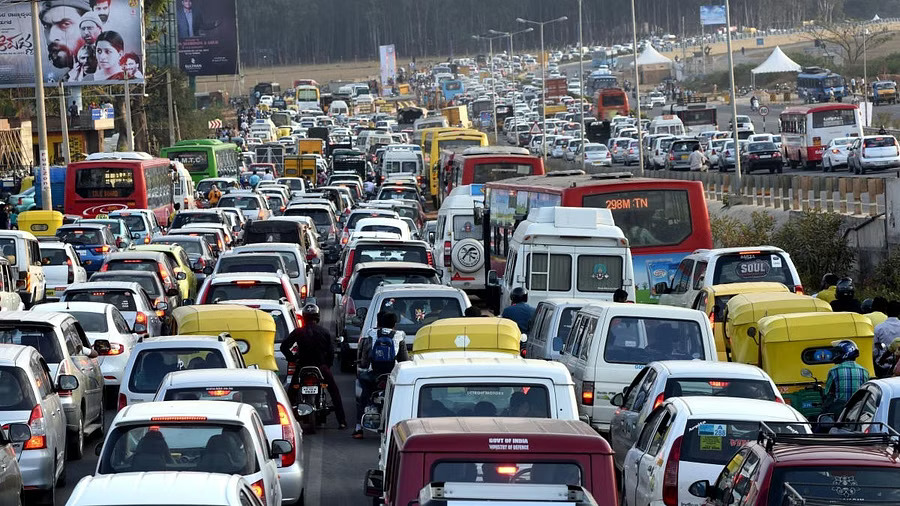With the goal of alleviating Bengaluru’s persistent traffic congestion, the government has initiated measures to tackle the city’s long-standing traffic woes. The move comes as part of a comprehensive strategy to improve traffic management, enhance mobility, and ensure a smoother commuting experience for the city’s residents.
Bengaluru, often referred to as the “Silicon Valley of India,” has been grappling with severe traffic congestion for years. The government’s proactive response to this issue is seen as a significant step toward enhancing the overall quality of life in the city.
The measures being undertaken encompass a multi-faceted approach, including:
- Infrastructure Development: The government is investing in the expansion and enhancement of road infrastructure, including the construction of new roads, flyovers, and underpasses. These projects are aimed at providing commuters with alternative routes and easing traffic bottlenecks.
- Public Transportation: The promotion of public transportation, including buses and metro services, is a key component of the strategy. The government is working to improve connectivity, frequency, and reliability of public transit options to encourage more residents to use them.
- Traffic Management Technology: The use of technology-driven solutions for traffic management is being prioritized. This includes the implementation of smart traffic signals, real-time traffic monitoring systems, and data analytics to optimize traffic flow and minimize congestion.
- Pedestrian and Cyclist Infrastructure: Creating pedestrian-friendly zones and dedicated cycling lanes is part of the effort to promote sustainable and eco-friendly modes of transportation. This move aims to reduce the dependency on private vehicles for short distances.
- Awareness Campaigns: The government is also focusing on raising public awareness about responsible driving, adherence to traffic rules, and the importance of carpooling and ride-sharing to reduce the number of vehicles on the road.
The government’s proactive approach to tackling Bengaluru’s traffic problem underscores the recognition of the issue’s impact on the city’s livability and economic productivity. Addressing traffic congestion is expected to not only improve daily commuting experiences but also contribute to a cleaner environment and reduced stress levels for residents.
As these initiatives are implemented, their impact on traffic congestion, air quality, and overall urban mobility will be closely monitored. The government’s commitment to finding sustainable solutions to Bengaluru’s traffic challenges sends a positive message to the city’s residents and businesses, signaling a concerted effort to create a more efficient and livable urban environment.










